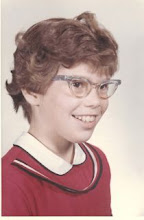 |
| Lois Brandt |
When you have a
book coming out (Maddi’s Fridge) and a book launch to plan (6-8 pm September 4th
at University Bookstore, Bellevue, Washington), that’s what you are supposed to blog about. But that’s
not what’s on my mind.
I’ve been
thinking about a girl in one of my classes.
I normally teach creative
writing to adults, but during the summer months I get to teach teens. I love
adults, but teens bring a fresh wonder with them as they swoop into the
classroom. I teach at a high level to challenge these young writers and my classes
are intense.
A few weeks ago,
a girl with both physical and intellectual disabilities came into my week-long
class. The parents gave me no advanced notice. The girl, I’ll call her Ida,
simply showed up.
I was a little
upset. Why hadn’t her parents spoken to me? How could I teach this girl if I
didn’t know her limits?
I flipped through
my notes and waited for the last students to arrive. All I could do, I decided,
was stick to my normal curriculum.
Ida followed
right along during lectures and writing exercises on that first day. She took
her turn speaking as each student discussed what they had written. When I had
trouble understanding Ida, I leaned over her work and could tell from her
writing what she was saying.
She apologized
for her handwriting; I showed her my own illegible scribbles. We bonded.
On the second day
of class, I always divide the students into groups to create characters. That
night I wondered if I should change my curriculum. Would the other students be
able to work with Ida if she were in their group? Should I partner with Ida to
give her extra attention?
Since I really
didn’t know how much of the curriculum Ida was understanding, I decided to treat
her like any other student. The kids in Ida’s group surpassed my hopes,
integrating Ida’s ideas and comments. She was an equal partner in the creation
of that group’s impressive character.
The next day all
students were required to turn in a short story draft. Ida sent me a summary of
her story and some character sketches with nice detail, but she had not yet understood
the idea of writing in scenes.
I decided to slow
things down for Ida. We were talking about using images to convey the theme of
the story. I guessed that Ida couldn’t follow the exercise, so I skipped over
her when students were talking about the image in their story that represents their
theme.
Ida’s hand shot
up. “You forgot me,” she said. She explained that she had chosen her
character’s hat. His mother had given it to him before she died. He kept it
with him as a reminder always to do the right thing. Her theme: if you remember
your mother, you will do good.
Ida nailed the
exercise.
Later, as we were
talking about scenes, Ida raised her hand. “I see the scenes in my head,” she
said. “I want to learn to write them down. That’s why I’m here.”
All writers have
scenes and characters crowding our heads. Truth be told, we’re all a little
nuts. We write to get scenes out of our heads and give ourselves breathing
room.
Ida’s comment pushed
me past my own limited thinking. Ida was absolutely in the correct class. She
was stretching and reaching towards her goal of writing stories. I was being an
over-cautious idiot.
Since that class,
I’ve been doing some serious self-assessment. What friends, acquaintances and
family members am I holding back with my stereotypes and truncated
expectations? What goals am I not reaching for in my own life?
I write for kids
because these are the stories that open us up to hope. These are the stories
that remind us to stretch and explore possibilities.
This past week I
was working on a hunger quiz for my book launch and getting more depressed by
the minute. How do you fight childhood hunger, a persistent problem that is harming
the health and futures of 16 million American children?
Then I thought of
Ida.
You do what Ida
did. Reach for your goals and ignore limits. See how far you can stretch.
Years ago, Lois Brandt peeked into her best friend's refrigerator and found empty shelves and one small carton of milk; the family didn't have enough money to buy food. Maddi's Fridge, Lois's first picture book, is the result of that moment. When she is not working on her own projects, Lois teaches writers of all ages to tell the stories that are close to their hearts. Lois lives near Seattle, Washington, with her husband, assorted kids, two dogs, and a fluffy cat who thinks he's a dog. You can visit Lois here.





This is a terrific story for anyone who teaches. Thanks for sharing it. I will be looking for Maddi's Fridge. It sounds like a great book.
ReplyDelete